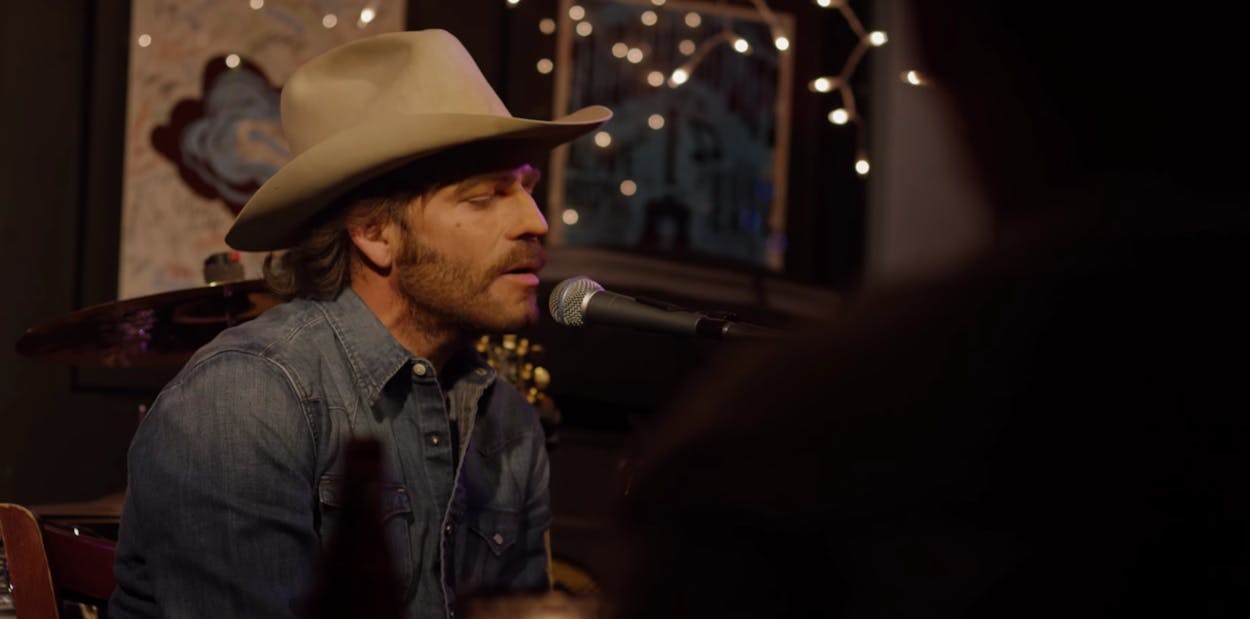According to the director Ryan Ross, whose debut film, Wheeler, opens today, he broke into the movie business the way most kids with showbiz aspirations do: take whatever gigs you can find, and always try to work your way up.
The 33-year-old Dallas native got his first big break as a student at the University of Texas at Austin, when he interned on Richard Linklater’s A Scanner Darkly. After graduating from UT in 2006 and moving to Los Angeles, he found low-level work at Imagine Entertainment, where he did “odds and ends jobs” for mega-producer Brian Grazer. While putting together an event for Grazer, he met the semi-famous actor Stephen Dorff.
Once a rising young star, Dorff had hit a rough patch, starring in schlock like Space Truckers, and was gunning for a comeback with a meaty role in Sofia Coppola’s Somewhere. “He’d had the same assistant for forever,” Ross explains, “and he was looking for someone who could not only do day-to-day stuff, but who could ultimately do more creative things with him, whether that was producing or developing projects.”
“We hit it off and had a really good run,” Ross recalls. He was able to get his feet wet as a director by shooting some commercials for an electronic cigarette Dorff was endorsing, and he earned associate-producer credits when Dorff starred in serious (if unsuccessful) dramas like The Debt and Zaytoun.
But the comeback didn’t quite take. Ross found other ways to pay the rent, while Dorff, whose father, Steve, and younger brother, Andrew, were both successful Nashville songwriters, decided to pen a few tunes of his own. (Andrew, who penned hits for Kenny Chesney and Blake Shelton, died in December, at the age of forty.) The two met for lunch one day in 2014, and Dorff played Ross the songs. They quickly realized the songs could be the basis for a Borat-style blend of documentary and feature film—just the sort of genre-busting move that could launch Ross’s career, and salvage Dorff’s.
Working with Nashville vet Bobby Tomberlin, a Dorff family friend, they accentuated the country elements in Dorff’s writing and conceived a character to build a movie around: Wheeler Bryson, a cowboy from Kaufman, Texas, who moves to Nashville to try his hand at professional songwriting. “We wanted to show the journey a singer/songwriter would have to take if he drove up to Nashville: showing up, playing an open mike, who would you have to meet to get to the next step.” They decided to shoot the movie documentary-style, with real locals and music-industry folk in every scene. And since they wanted their cast of non-professional actors to respond as if Wheeler were a nobody, not a movie star, they made Dorff unrecognizable, with a prosthetic lip and nose, bushy eyebrows, and a Texas drawl.
According to Ross, the deception worked surprisingly well. People “thought we were making a documentary” he says. Not only was Dorff accepted as Wheeler when he ate at lunch counters or played open-mikes, but the actor made it through entire recording sessions in which the hired studio musicians thought they were shooting a real behind-the-scenes look at a talented nobody.
Some of those instrumentalists knew Stephen’s family very well, Ross says. “Actually, one of them—Jimmy Nichols, the keyboard player—had Thanksgiving with Stephen and his family a few years prior. We brought him into the sound booth, and Stephen went up to him and said, in his real voice, ‘Hey, Jimmy, I just want to tell you something. I’m Stephen Dorff.’
“[Nichols] was like, ‘What?!’
“‘I’m actually Stephen Dorff, Steve’s son—I’m in makeup right now.'”
Ross recalls that Nichols responded with some expletives that can’t be printed here. “It was cool,” he laughs, clearly proud of himself.
One person who wasn’t fooled—wisely, the filmmakers didn’t even try—was Kris Kristofferson. The revered Texas songwriter/actor had worked with Dorff on the first Blade film in 1998, and, after hearing some of the new songs, agreed to shoot a cameo as himself.
The scene was shot in a recording studio, and Dorff believed Kristofferson would be playing some random new tune. But the singer had chosen “New Mister Me,” from his 1995 album A Moment of Forever—a song whose passing-of-the-torch lyrics suggest the elder musician is anointing Wheeler as his rightful heir.
Dorff was dumbstruck, and Ross got the response on camera. “That’s a natural reaction,” he marvels. “It just worked out perfect.”






